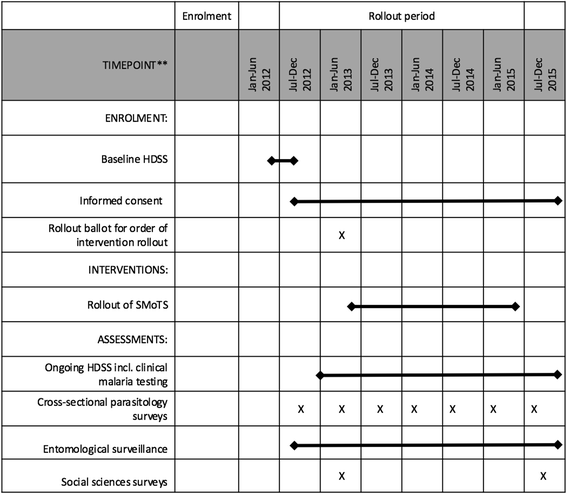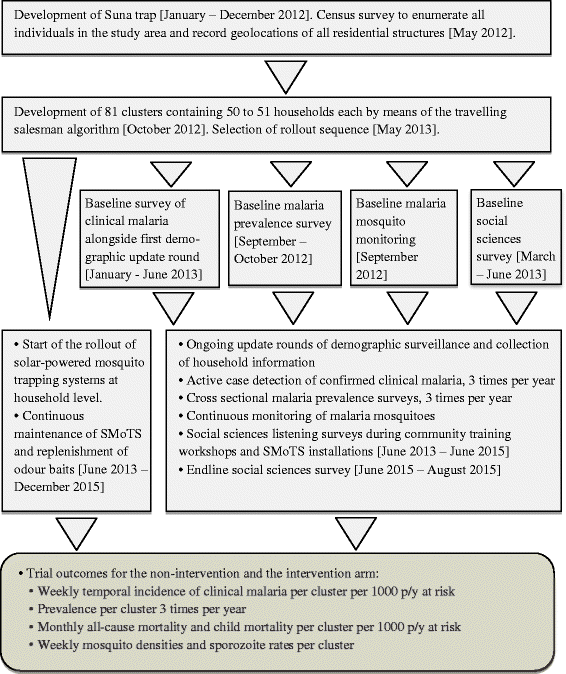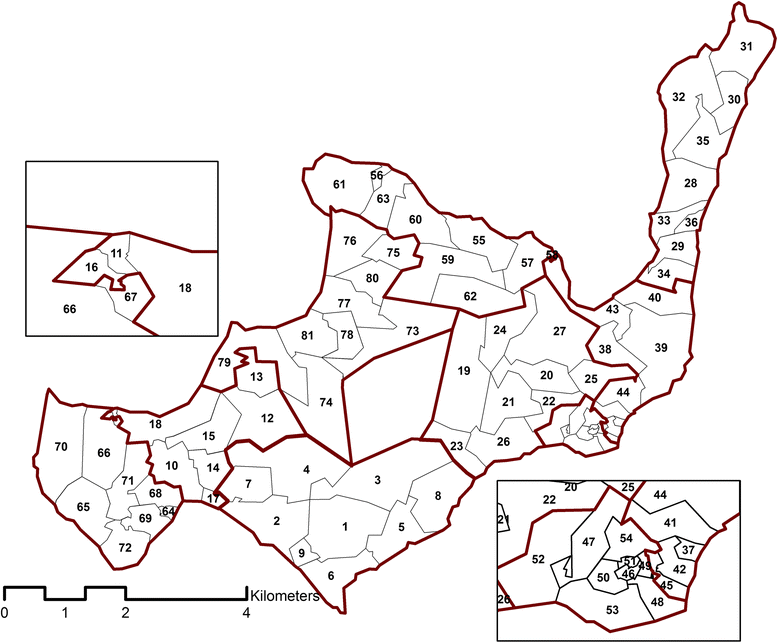Mass mosquito trapping for malaria control in western Kenya: study protocol for a stepped wedge cluster-randomised trial
- PMID: 27460054
- PMCID: PMC4962350
- DOI: 10.1186/s13063-016-1469-z
Mass mosquito trapping for malaria control in western Kenya: study protocol for a stepped wedge cluster-randomised trial
Abstract
Background: Increasing levels of insecticide resistance as well as outdoor, residual transmission of malaria threaten the efficacy of existing vector control tools used against malaria mosquitoes. The development of odour-baited mosquito traps has led to the possibility of controlling malaria through mass trapping of malaria vectors. Through daily removal trapping against a background of continued bed net use it is anticipated that vector populations could be suppressed to a level where continued transmission of malaria will no longer be possible.
Methods/design: A stepped wedge cluster-randomised trial design was used for the implementation of mass mosquito trapping on Rusinga Island, western Kenya (the SolarMal project). Over the course of 2 years (2013-2015) all households on the island were provided with a solar-powered mosquito trapping system. A continuous health and demographic surveillance system combined with parasitological surveys three times a year, successive rounds of mosquito monitoring and regular sociological studies allowed measurement of intervention outcomes before, during and at completion of the rollout of traps. Data collection continued after achieving mass coverage with traps in order to estimate the longer term effectiveness of this novel intervention. Solar energy was exploited to provide electric light and mobile phone charging for each household, and the impacts of these immediate tangible benefits upon acceptability of and adherence to the use of the intervention are being measured.
Discussion: This study will be the first to evaluate whether the principle of solar-powered mass mosquito trapping could be an effective tool for elimination of malaria. If proven to be effective, this novel approach to malaria control would be a valuable addition to the existing strategies of long-lasting insecticide-treated nets and case management. Sociological studies provide a knowledge base for understanding the usage of this novel tool.
Trial registration: Trialregister.nl: NTR3496 - SolarMal. Registered on 20 June 2012.
Keywords: Anopheline mosquitoes; Clinical malaria; Mass trapping; Odour-baited trap; Stepped wedge cluster-randomised trial; Transmission; Vector control.
Figures



References
-
- World Health Organization . World Malaria Report 2014. Geneva: World Health Organization; 2015.
Publication types
MeSH terms
Associated data
LinkOut - more resources
Full Text Sources
Other Literature Sources
Medical

